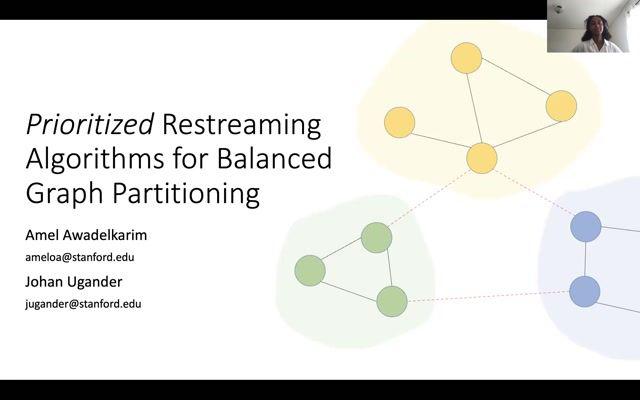Abstract:
Algorithms for dynamically maintaining minimum spanning trees (MSTs) have received much attention in both the parallel and sequential settings. While previous work has given optimal algorithms for dense graphs, all existing parallel batch-dynamic algorithms perform polynomial work per update in the worst case for sparse graphs. In this paper, we present the first work-efficient parallel batch-dynamic algorithm for incremental MST, which can insert l edges in O(l log(1+n/l) work in expectation and O(polylog(n)) span w.h.p. The key ingredient of our algorithm is an algorithm for constructing a compressed path tree of an edge-weighted tree, which is a smaller tree that contains all pairwise heaviest edges between a given set of marked vertices. Using our batch-incremental MST algorithm, we demonstrate a range of applications that become efficiently solvable in parallel in the sliding-window model, such as graph connectivity, approximate MSTs, testing bipartiteness, k-certificates, cycle-freeness, and maintaining sparsifiers.









































